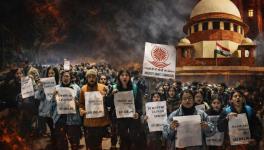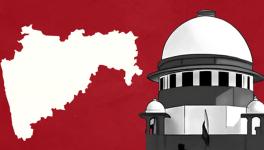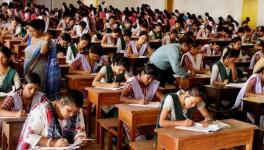Telangana’s Backward Caste Overseas Scholarship Hampered by Inclusion of EWS Reservation Policy
India recently celebrated the 195th birth anniversary of Mahatma Jyotiba Phule, a social reformer and revolutionary who worked for a just and equal society throughout his life. Meanwhile, a scholarship created in Phule’s name in Telangana to help students from Backward Castes/Classe was controversially changed to include students from economically backward/weaker sections (EWS) belonging to the dominant castes in the state.
Hailing from the so-called lowest level of Sudra caste in the thousands-years-old, hierarchical caste practice in Hinduism, Phule had fought against caste discrimination and oppression. Along with his effort to annihilate the cultural practice of ‘untouchability’, he is greatly remembered as the pioneer of empowering women and people from ‘lower castes’ by ensuring education for them. India’s first female teacher Savitribai Phule, along with Jyotiba Phule, opened the first school for girls, widows and the marginalised.
So, when the Telangana state government initiated a state-funded scholarship scheme in his name to facilitate the persuasion of higher education abroad for financially struggling scholars from Backward Castes/Classes, it only seemed right. However, later modifications in the scheme to include students from EBC-EWS communities - who hail from the dominant castes and have better economic conditions - have been diverting the welfare objective for the OBC candidates towards EWS groups like the Reddy, Rao, Naidu and other castes in Telangana.
Introduction of the Scheme
The Backward Classes Welfare Department of the Government of Telangana started the ‘ “Mahatma Jyothiba Phule BC Overseas Vidya Nidhi” (MJPOVN) for the benefit of the students belonging to Backward Classes in 2016. A government order (G.O) ( G.O.Ms.No.23 on 10.10.2016) released on October 10, 2016, says that the state government has made monetary allocation for the Backward Classes students as an encouragement for them to pursue professional and graduate courses abroad. It adds that the education abroad would enable them to explore growth opportunities both in education and job, which is mostly inaccessible to them over graded inequalities created by operations of caste society in every sphere. Thus, the scheme would facilitate the meritorious BC students to study in foreign universities and contribute to achieving the government’s interest in the socio-economic development of their communities.
In the initial conditional clauses from the G.O.23, the scheme mentions the scholarship awarding of 300 BC students to pursue postgraduate studies abroad every academic year. Among the conditions for the procedure of selection, the clause says that the scholarship would be awarded in proportion to the population of different communities of BCs. Among the communities, the allocation would be done as: BC - A = 29%, BC – B = 42% and BC – D = 29% including 33% women and 3% physically challenged students.
Later Modifications of the Scheme
The initial clauses of the scheme introduced in 2016 were followed up with some necessary modifications like fixing the age eligibility by putting in a certain date for the ease of calculation of the required age of the applicants, the inclusion of PhD among the courses, allocating budget for air ticket to reach the designated universities abroad etc. But few procedural changes have had adverse implications on the objectivity of the scheme for its targeted beneficiary group in the long run.
On November 9, 2017, in a government order (G.O.Ms.No.66), the “Mahatma Jyothiba Phule BC Overseas Vidya Nidhi'' scheme included the clause that among 300 awardees, 5%, that is, 15 seats shall be reserved for Economically Backward Classes ( EBCs). Again, in February 2021, the state government of Telangana through another G.O (G.O.Ms.No. 33) initiated the 10% reservation to the Economically Weaker Sections (EWS) in all state affairs as the Union government pushed for its implementation in 2019 for all the states. Right after the implementation of the scheme in 2021, it was applied to MPJOVN, leading to the selection of 66 Reddy caste candidates for the scholarship in the academic year 2021-22.
Instead of creating a new mechanism or guidelines for the integration of the EWS category in any scheme, such a merger of reservation policy and personnel selection has created problems of division and diversion of the limited funds that were initially intended for the welfare of the OBCs, who constitute more than 50% of the total state population. The Reddy caste students have been one of the highest abroad-going communities from Andhra Pradesh and Telangana (Roohi, 2017 pp.2757). For instance, at least three representatives out of four members in the different committees formed for a major convention arranged by the Telangana American Telugu Association are Reddys. The Reddy and other dominant EWS communities already have well-represented bodies in all aspects of the state, contrary to their lesser proportion in the state population. In 2019, the Reddys alone constituted one-third of the total cabinet members among the 11 forward caste representations. Currently, 06 ministers of the Telangana state government come from the Reddy community, in addition to the Legislative Council Chairman and the Assembly Speaker.
This article does not intend to hurt anyone from the Reddy or other dominant EWS caste regarding their tremendous socio-educational development. It only wants to highlight that any such reservation policy should have a distinct application mechanism formulated by the state without getting in the way of efforts to balance the diversity by assisting students from other sections of the state to go abroad. If not checked, the integration of the EWS reservation policy in this particular scholarship scheme for the OBCs might hamper accessibility opportunities to higher education in foreign universities for many
first-generation scholars from OBC communities.
RTI and Official Data Analysis against the MPJOVN Scheme
Along with the problem of fund diversion through integrating the EWS reservation policy into the scheme, the analysis of data from official documents and RTIs indicates a few more loopholes that would scar the intended values of the scheme if left unattended.
The RTI data requested by Dr Sravan Dasoju, national spokesperson for the All India Congress Committee, and the data published on the Epass Telangana scholarship official website show evidential issues in implementing the MJPOVN scheme. According to the official document, 300 students are supposed to be selected each academic year. But the RTI data shows that in the last two academic years of 2020-2021 and 2019-20, only 150 students were selected each year, despite higher application numbers of 958 on average.
Again, the allocated budget is not sufficient to cover the intended 300 selected students. The RTI reveals that in the academic years 2020-21, 2021-22, the budget was cut in half from its initiatory budget from 2016 to 2019. Further, even from this reduced allocation, the BC welfare department has utilised only half of the budget for the MJPOVN.
Additionally, the mandatory criteria of IELTS and GRE, even if the designated university does not require one, make the application process complex as the tests are unaffordable for most students coming from socio-economically marginalised SC, ST and OBC communities. This may keep many students from applying for the MJPOVN.
In an assembly session of Telangana state in September 2020, the Backwards Caste/Classes Welfare Minister Gangula Kamalakar stated that under the MJPOVN overseas scholarship, his department had sent 1133 students between the academic year 2016-17 and 2019-20. This is less than the number stated in the official G.O released during the initiation of the scheme in 2016 if calculated in total (300 x 4 academic years of 2016-17, 2017-18, 2018-19, 2019-20 = 1200).
However, the RTI data retrieved from the BC Welfare Department, as illustrated below, shows that the actual number might be even less, contrary to the information given by the minister in the assembly.
Additionally, as heard in the aforementioned assembly speech by minister Gangula Kamalakar, he said that with the possible increase in future demand for a higher number of scholarship awards, the department would increase the number of awards and budget. Yet, the RTI data shows (as illustrated below) that the budget declined in the academic year of 2020-21 despite an increased number of applications, while the number of students selected remained the same.
The data received from the official documents published by the BC Welfare Department in reply to the RTIs shows that several loopholes and gaps in information coordination are very much existent in the implementation of the ‘Mahatma Jyothiba Phule BC Overseas Vidya Nidhi’ scheme.
Within any state boundary, it is the government’s responsibility to ensure affirmative actions for mobilising the development of the state’s socio-economically marginalised communities. This overseas education support scheme for the financially struggling OBC students in Telangana is one such state initiative. Still, in its green days, the scheme would only be successful in making actual growth in the Backwards Classes if the shortcomings in the budget, number of awards, and disintegration of reservation policy for already privileged castes are sincerely addressed and acted upon by the state government.
(Ashok Danavath is a postgraduate student and researcher on Policy and Social Justice at the International Institute of Social Studies, Erasmus University Rotterdam. Hailing from Telangana, he previously graduated from TISS, Hyderabad, and worked at Libtech-India.)
Get the latest reports & analysis with people's perspective on Protests, movements & deep analytical videos, discussions of the current affairs in your Telegram app. Subscribe to NewsClick's Telegram channel & get Real-Time updates on stories, as they get published on our website.























